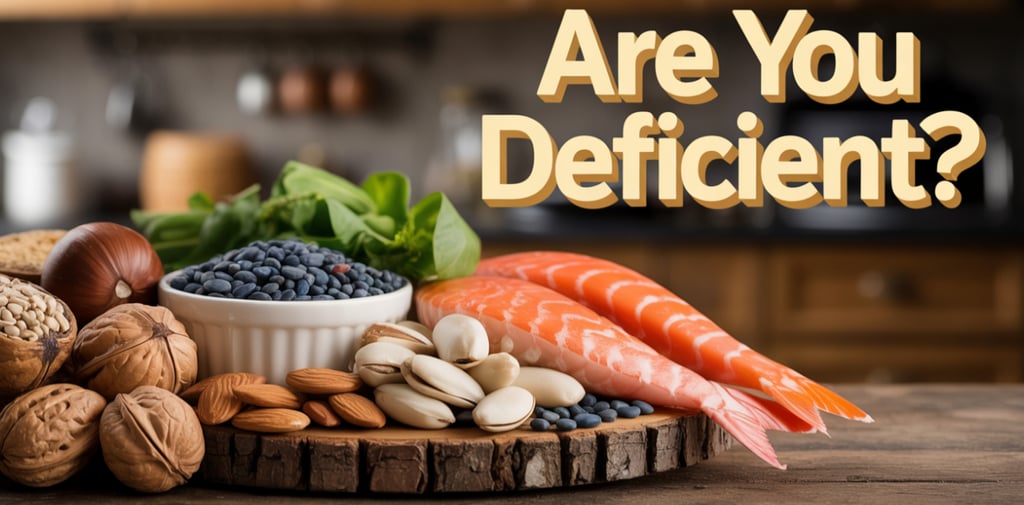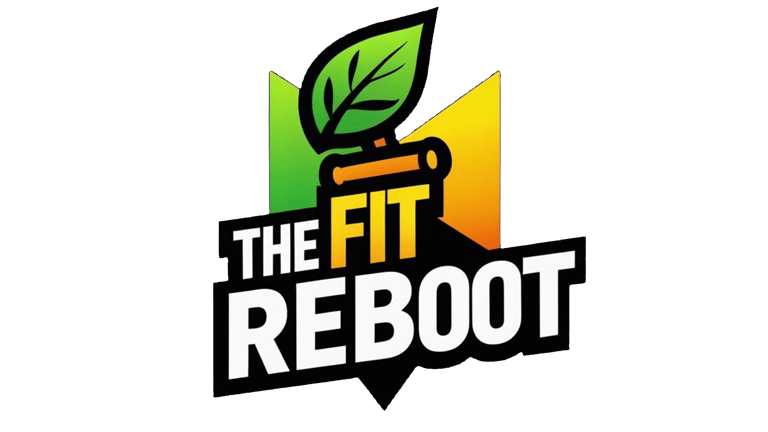Is Your Body Whispering a Warning? The Hidden Signs of Zinc Deficiency You Shouldn’t Ignore
Feeling tired, getting sick often, or noticing hair loss? These could be signs of zinc deficiency. Learn why zinc is essential for your health and how to naturally restore healthy levels through diet and lifestyle.
5/8/2025


Is Your Body Whispering a Warning? The Hidden Signs of Zinc Deficiency You Shouldn’t Ignore
Imagine your body trying to send you a message—a quiet, persistent whisper that’s easy to dismiss. This subtle signal could be alerting you to something critically important: a zinc deficiency.
Zinc is one of those underappreciated nutrients that quietly powers hundreds of essential functions in your body. From strengthening your immune system to promoting healthy skin and hair, this mineral is a true multitasker. But many people aren't getting enough—and the consequences often go unnoticed until they begin to impact your daily life.
Let’s explore how zinc works in your body, the subtle symptoms of deficiency, and how you can take control of your health by restoring this essential nutrient.
Why Zinc Matters So Much
Zinc acts like a microscopic superhero, constantly at work in nearly every cell of your body. It supports your immune defense, speeds up wound healing, maintains your sense of taste and smell, regulates hormones, helps your body absorb nutrients, and even contributes to DNA production.
Because it plays such a foundational role in health, even a mild deficiency can ripple outward in surprising ways.
Signs Your Body May Be Low on Zinc
1. Persistent Fatigue
Feeling run down despite a full night’s sleep? Zinc is necessary for cellular energy production and immune efficiency. Without enough of it, your body struggles to operate at full capacity, leaving you feeling drained and sluggish.
2. Frequent Illness
If you seem to catch every cold or virus going around, it could be a sign your immune system is underperforming. Zinc helps produce and activate white blood cells like T-cells—the body’s internal army against infection.
3. Thinning Hair and Hair Loss
Hair shedding more than usual? Zinc plays a key role in follicle health and hair regeneration. A lack of zinc can lead to weak, brittle strands or even hair thinning across the scalp.
4. Skin Issues That Don’t Heal
Zinc is essential for wound healing and managing inflammation. If you’re dealing with stubborn acne, slow-healing cuts, or unexplained rashes, low zinc levels could be interfering with your skin’s natural repair system.
5. Digestive Distress
Recurring diarrhea or digestive imbalances can both cause and worsen zinc deficiency. Zinc also aids in breaking down and absorbing nutrients—so without it, your gut may struggle to do its job.
6. Loss of Taste or Appetite
Food suddenly tastes dull or you’ve noticed a decreased appetite? Zinc is vital for maintaining your sense of taste and smell. Deficiency can make food seem bland or unappealing, which often leads to further nutritional imbalance.
Why Zinc Deficiency Is So Easy to Miss
What makes zinc deficiency so tricky is that its symptoms often blend in with everyday stressors. Hair loss? Probably just stress. Feeling tired? Maybe you’re just overworked. Skin issues? Must be a new soap. But these seemingly minor issues can be your body’s early SOS signal.
Unfortunately, many people brush off these symptoms until they become more serious. Recognizing the signs early can help you prevent long-term health issues and restore your vitality naturally.
How to Boost Your Zinc Levels Naturally
The good news? It’s completely possible to improve your zinc intake through simple diet changes. Here are some of the best food sources of zinc:
Oysters – The most zinc-rich food on the planet.
Red Meat – Beef, lamb, and pork are excellent sources.
Poultry – Chicken and turkey provide moderate levels.
Pumpkin Seeds – A great plant-based option.
Legumes – Lentils, chickpeas, and beans contain zinc, though absorption may be limited.
Whole Grains and Nuts – Almonds, cashews, and quinoa are helpful additions.
Dairy – Cheese and yogurt offer modest amounts of bioavailable zinc.
Pro Tip: Pair zinc-rich foods with protein to enhance absorption, and reduce phytates (which block zinc) by soaking beans or choosing sprouted grains when possible.
Should You Consider Supplements?
If you suspect a deficiency or aren’t able to get enough zinc through food alone, a high-quality supplement may be helpful. However, it’s best to speak with a healthcare provider first. A simple blood test can determine your zinc levels and guide you toward the best next step.
Final Thoughts: Listen to Your Body’s Whisper Before It Becomes a Shout
Zinc may be small, but its role in your health is massive. From your immune function to your energy levels, hair, skin, and digestion—this mineral touches nearly every aspect of your well-being.
Your body is constantly sending signals. When you feel off—more tired, more prone to illness, or just not yourself—it’s worth investigating. Don’t ignore the signs.
By making conscious choices to support your body with nutrient-rich foods and seeking help when needed, you’re taking powerful steps toward a healthier, more energized you.
Your body is speaking. Are you ready to listen?
Top Three Zinc Supplements on Amazon
1.Nature's Bounty: https://amzn.to/4fq7K9Q
2.Nature Made: https://amzn.to/46JyaRG
3. Pure Encapsulations Zinc: https://amzn.to/3J9Evfk
Please note these are Amazon affiliate links.
Top Three Zinc Supplements on Amazon
1.Nature's Bounty: https://amzn.to/4fq7K9Q
2.Nature Made: https://amzn.to/46JyaRG
3. Pure Encapsulations Zinc: https://amzn.to/3J9Evfk
Please note these are Amazon affiliate links.


